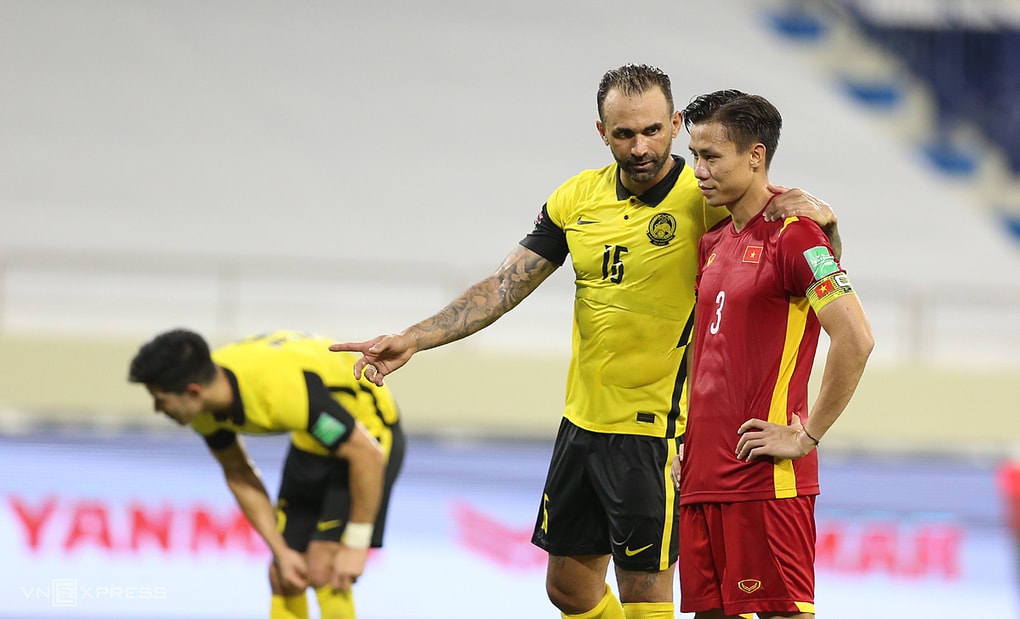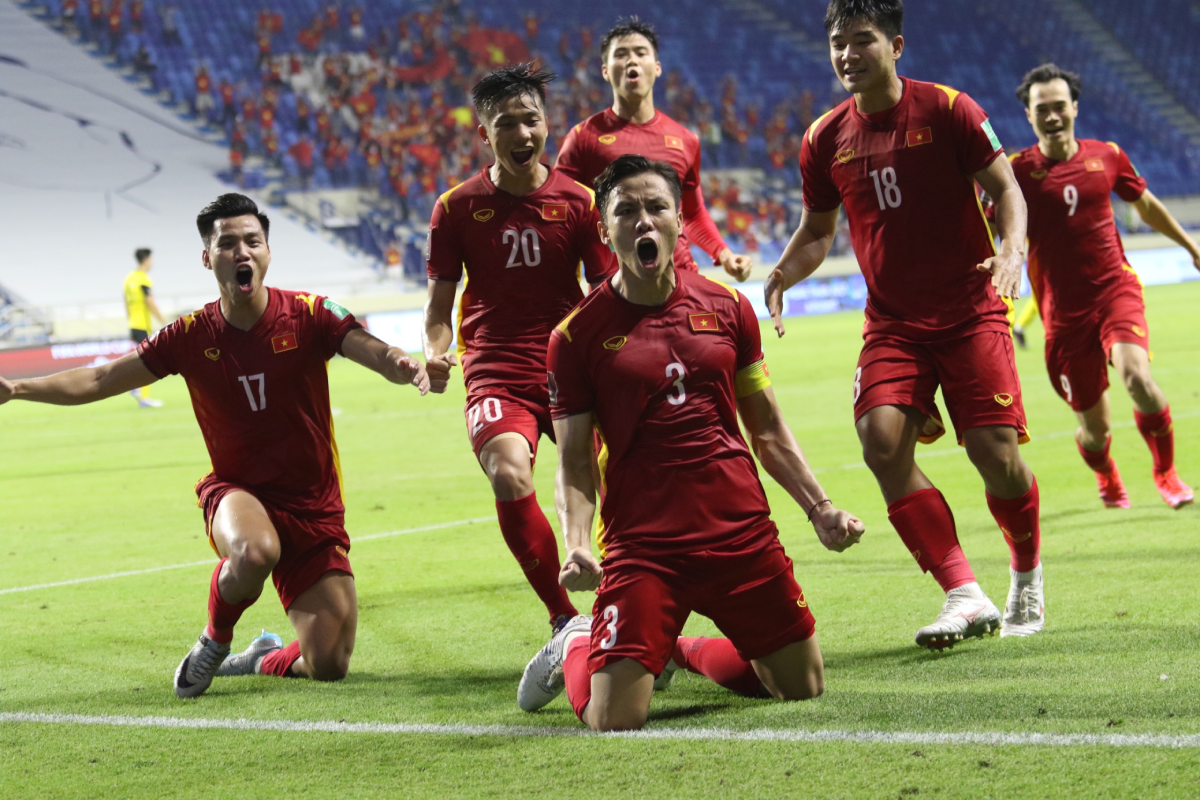Que Ngoc Hai's class speaks out
(Baonghean.vn) - Goalkeepers Tan Truong, Que Ngoc Hai and Hoang Duc are the names mentioned most after the match with Indonesia. The image of the Nghe An captain coldly walking to the penalty spot to take the 11m kick at Ai Maktoum Stadium will forever be in the hearts of fans.
When evaluating and grading any player on the field, people will focus on the situation where the player creates a turning point in the match and the contribution to the team's play during the match. Obviously, in both aspects, center back Que Ngoc Hai did very well in the match against Malaysia.
Necessary coldness
First of all, about the penalty kick, people saw that the captain of the Vietnamese team very quickly decided to take on the responsibility that coach Park assigned him. At that time, the score was 1-1 and there were only 8 minutes left until the end of the match, many players without the courage would not dare to take on the task, even though the coaching board had assigned it in the technical meeting.
 |
| Striker Guilherme de Paula Lucrecio tried to distract Que Ngoc Hai as he prepared to take a penalty. Photo: Lam Thoa/VNE |
Watching on the screen, we saw Malaysian players crowding together to use tricks to provoke and psychologically influence Que Ngoc Hai before taking the fateful kick. If tricked, the player taking the free kick could easily argue back, some even tried to push the opponent away, but in reality on the Ai Maktoum field, Ngoc Hai did not pay any attention, and he coldly focused on his professional work to fulfill his responsibilities.
Returning to the match, when Coach Park decided to change up to 4 positions in midfield, the burden will inevitably fall on the shoulders of 3 central defenders, with Que Ngoc Hai playing in the middle, responsible for commanding the defense. Football commentator Dang Gia Man said: "When Coach Park decided to choose the "give the ball, not give the field" style of play in the match against Malaysia, the central defenders and goalkeeper were the ones under the most pressure. They always had to concentrate for 90 minutes to "show up" to intervene promptly in specific situations."
This is the match in which coach Tan of Malaysia made many changes after the 0-4 loss to the host UAE. The Malaysian strikers with a height of over 1.80 often approached, ready to collide with the Vietnamese defenders who were shorter. The opponent held the ball for 63% of the time, made 460 passes with an accuracy rate of 83% (Vietnam had 290 passes, accuracy of only 71%) but only scored 1 goal, so the defense must be mentioned.
The leader's mark
This was a match where naturalized players like Guilherme de Paula or midfielder M.Devies played quite impressively. Only the excellence of goalkeeper Tan Truong and before that Que Ngoc Hai prevented us from losing more. Of the opponent's 9 shots, 4 were on target and 2 of them Que Ngoc Hai tried hard to block to make it difficult for the opponent when taking the shot.
Under pressure from Malaysia's two flanks with fast wingers Safawi Rasid and M. Sumareh, the opposing team often entered the Vietnamese team's half. As the leader, Que Ngoc Hai directed his teammates to cover and support Van Hau and Trong Hoang.
 |
| Que Ngoc Hai celebrates the decisive goal of the match. Photo: Lam Thoa/VNE |
At the time of the equalizer, viewers were also particularly impressed with Que Ngoc Hai for his composure and confidence in many situations facing the opposing striker. There were a few situations where viewers thought Que Ngoc Hai would clear the ball or panic and pass it to his teammates. But knowing that doing so would invisibly put pressure on his teammates to calmly and confidently handle the situation and only pass the ball to his teammates when it was safe. That is the quality that a leader needs to have, must have in tense moments.
Surely UAE is the toughest opponent that Que Ngoc Hai and his teammates have to face. Hopefully this is also the time for Que Ngoc Hai to show his full class as a top center back in Southeast Asia at the present time.


